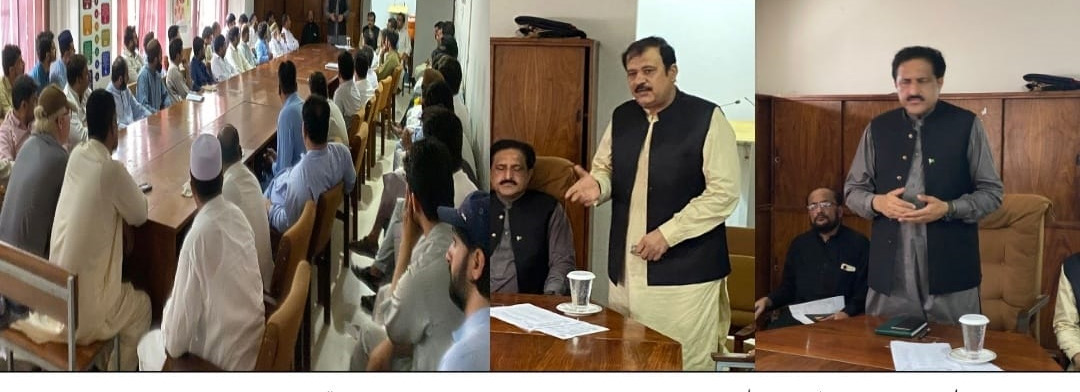DG Population KP Rehan Gul Khattak Addresses Participants on the Topic of “Amar Bin Maroof”
STAFF REPORTER
PESHAWAR: An important meeting was held under the auspices of the Khyber Pakhtunkhwa Population Welfare Department in District Peshawar to review the monthly performance of male Family Welfare Assistants. The Director General of Population Welfare KP, Rehan Gul Khattak, participated in the meeting as a special guest. Also present were District Population Welfare Officer Peshawar, Samiullah Khan, and Deputy District Population Welfare Officer Kashif Fida.The purpose of the meeting was to review the field staff’s performance during the past month, identify ongoing issues, find solutions, and plan for the future. Male Family Welfare Assistants from all union councils attended the meeting. The participants presented detailed reports on the activities carried out in their respective areas, including public awareness campaigns, field visits, and achievement of targets. Addressing the meeting, Director General Rehan Gul Khattak said that the Population Welfare Department plays a fundamental role in the welfare and development of society. He noted that developed countries have achieved economic and social stability by maintaining a balanced population. He added that our country is not only facing a shortage of resources, but the pressure of overpopulation has reached a dangerous level, which is negatively impacting education, health, employment, and other sectors. He urged field staff to carry out their responsibilities as a national duty and to ensure the transparent use of government resources. He emphasized that reports should not be based solely on numbers, but real focus must be on public awareness and service delivery. District Population Welfare Officer Samiullah Khan stated that “Amar Bil Maroof” means fulfilling the responsibilities entrusted to us by the state with utmost honesty, sincerity, and integrity. He said it is our collective responsibility to effectively deliver messages of family planning, maternal and child health, and population management to the public. He instructed the field workers to maintain regular contact within their communities, improve clinic services, and provide complete guidance to t

